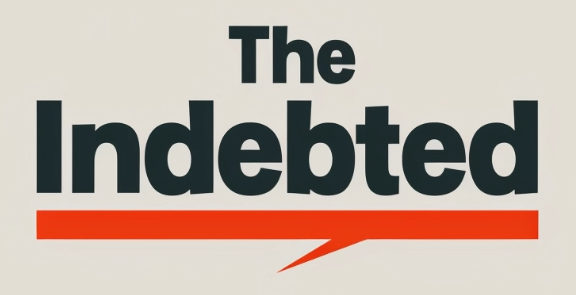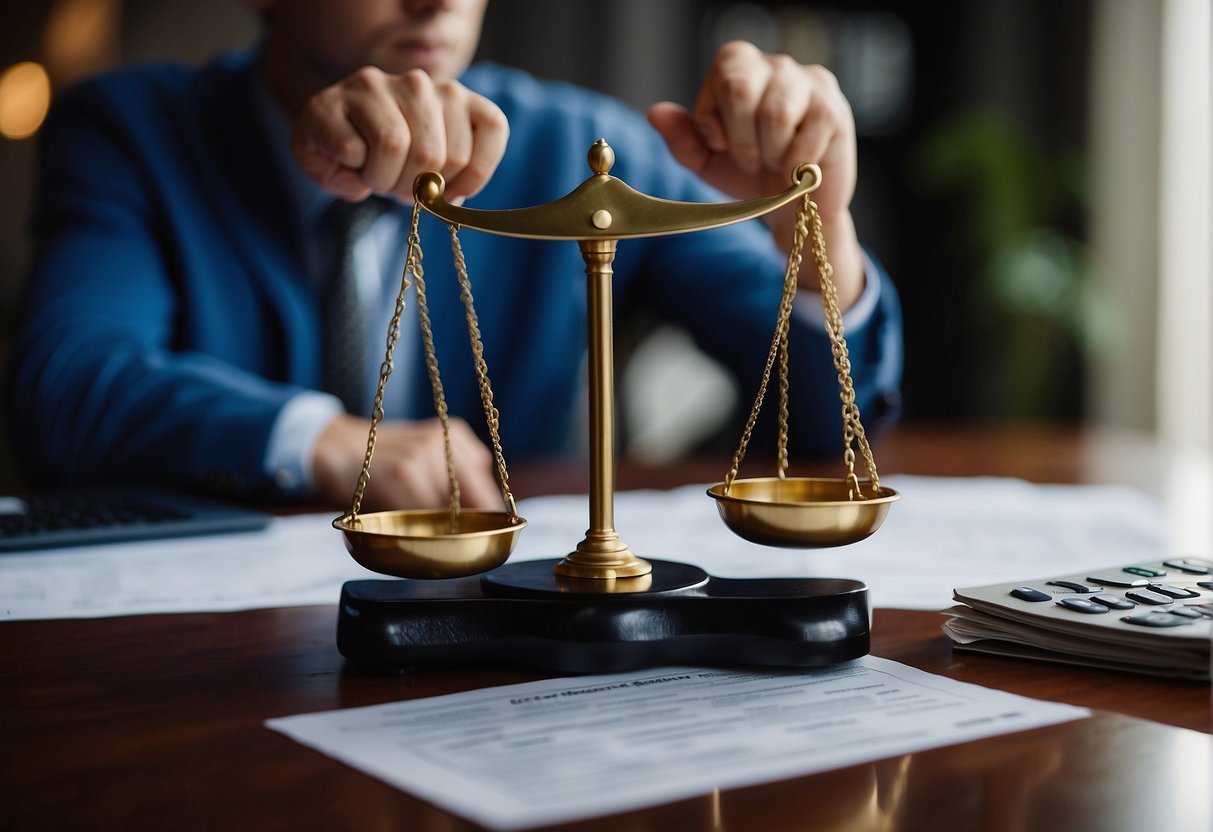Dealing with collection agencies can be a stressful and overwhelming experience. Whether you owe a debt or not, it is important to know your rights and how to handle the situation. In this article, I will provide you with the information you need to effectively deal with collection agencies and protect your rights.
First and foremost, it is important to understand that collection agencies are required by law to follow certain guidelines when attempting to collect a debt. These guidelines are outlined in the Fair Debt Collection Practices Act (FDCPA) and include rules regarding when and how collection agencies can contact you, what information they can disclose, and what actions they can take to collect a debt. By familiarizing yourself with these guidelines, you can ensure that collection agencies are not overstepping their bounds and violating your rights.
In addition to understanding your rights, it is important to know how to handle communication with collection agencies. This includes knowing what information to provide, what questions to ask, and how to negotiate a payment plan if necessary. By following the tips and guidelines provided in this article, you can approach the situation with confidence and protect yourself from any unethical or illegal practices by collection agencies.
Understanding Your Rights Under the FDCPA
As a consumer, it’s essential to understand your rights under the Fair Debt Collection Practices Act (FDCPA) when dealing with debt collectors. The FDCPA is a federal law that aims to protect consumers from harassment, abuse, and unfair practices by debt collectors.
What the FDCPA Covers
The FDCPA covers third-party debt collectors, including collection agencies, lawyers who regularly collect debts, and companies that buy delinquent debts and then try to collect them. It doesn’t cover original creditors, such as credit card companies or medical providers, unless they use a different name to collect the debt.
Under the FDCPA, debt collectors cannot:
- Contact you before 8 a.m. or after 9 p.m.
- Contact you at work if they know your employer doesn’t allow it.
- Contact your family, friends, or neighbors about your debt, except to get your contact information.
- Use obscene or profane language or threaten you with violence.
- Misrepresent the amount you owe or lie about their identity or intentions.
- Add unauthorized fees, interest, or charges to your debt.
Common Violations by Debt Collectors
Debt collectors violate the FDCPA when they engage in any of the prohibited practices. Some of the most common violations include:
- Calling you repeatedly or continuously to annoy or harass you.
- Failing to send you a written notice within five days of their first contact, which must include the amount you owe, the name of the creditor, and your rights under the FDCPA.
- Threatening to sue you or garnish your wages without the intention of doing so.
- Failing to verify your debt when you dispute it within 30 days of receiving the written notice.
- Continuing to contact you after you’ve sent a written request to stop or hired an attorney to represent you.
If a debt collector violates the FDCPA, you have the right to sue them in state or federal court within one year of the violation. You can also file a complaint with the Consumer Financial Protection Bureau (CFPB) or your state attorney general’s office.
Knowing your rights under the FDCPA can help you deal with collection agencies with confidence and avoid unnecessary stress.
Communicating with Collection Agencies
Dealing with collection agencies can be stressful, but it is important to know your rights and how to communicate effectively with them. In this section, I will provide you with some tips on how to handle initial contact, request debt verification, and cease communication.
How to Handle Initial Contact
When a collection agency contacts you, it is important to remain calm and professional. You have the right to ask for the name of the collection agency, the name of the original creditor, and the amount of the debt they are trying to collect. You should also ask for their mailing address and phone number.
It is important to note that you should not pay any money right away. The collection agency is legally required to take several steps to prove that you owe them money before you are obligated to pay. You have the right to dispute the debt if you believe it is not legitimate or if you do not owe the amount they claim.
Requesting Debt Verification
If you are unsure about the validity of the debt, you have the right to request verification of the debt. You can do this by sending a debt verification letter to the collection agency within 30 days of their initial contact. The letter should request that the collection agency provide written proof of the debt, including the amount owed and the name of the original creditor.
It is important to send the letter via certified mail with return receipt requested. This will provide you with proof that the collection agency received the letter. If the collection agency cannot provide written proof of the debt, they are required by law to cease collection efforts.
Ceasing Communication
If you do not wish to communicate with the collection agency, you have the right to request that they cease communication. You can do this by sending a letter to the collection agency requesting that they stop contacting you. Once they receive the letter, they are only allowed to contact you to confirm that they have received the letter or to inform you of legal action they plan to take.
It is important to note that ceasing communication does not eliminate the debt. You are still responsible for paying the debt, but the collection agency cannot contact you once they receive the letter.
In summary, communicating with collection agencies can be intimidating, but it is important to know your rights and how to handle initial contact, request debt verification, and cease communication effectively. By following these tips, you can protect yourself and ensure that your rights are respected.
Dealing with Debt Collection Practices
Dealing with debt collectors can be a daunting task, but you have rights that protect you from unfair practices. In this section, I will provide some tips on how to deal with debt collection practices and know your rights.
Identifying Scam Agencies
Not all debt collection agencies are legitimate. Some of them are scams that try to trick you into paying money that you don’t owe. To identify a scam agency, look out for the following warning signs:
- They ask you to pay over the phone or by wire transfer.
- They threaten you with arrest or legal action.
- They refuse to provide you with written proof of the debt.
- They ask for your personal information, such as your Social Security number or bank account details.
If you suspect that you are dealing with a scam agency, report them to the Federal Trade Commission (FTC) immediately. You can file a complaint online or by phone.
Negotiating a Payment Plan
If you owe a debt, you have the right to negotiate a payment plan with the debt collector. This can help you avoid legal action and protect your credit score. Here are some tips for negotiating a payment plan:
- Be honest about your financial situation.
- Offer to pay what you can afford.
- Get the agreement in writing.
- Keep a record of all payments.
Remember, you have the right to stop the debt collector from contacting you by sending a written request. However, this does not cancel the debt.
Taking Legal Action Against Unfair Practices
If a debt collector violates your rights, you have the right to take legal action against them. Here are some examples of unfair practices:
- Harassment or intimidation.
- Threatening legal action they cannot take.
- Misrepresenting the amount or status of the debt.
- Calling you outside of reasonable hours.
To take legal action, you can file a complaint with the FTC or sue the debt collector in court. If you win the lawsuit, you may be entitled to damages and attorney fees.
In conclusion, knowing your rights and dealing with debt collection practices can be overwhelming, but it is important to protect yourself from unfair practices. By identifying scam agencies, negotiating a payment plan, and taking legal action against unfair practices, you can ensure that your rights are respected.
Protecting Personal Information and Finances
As I deal with collection agencies, it’s important to protect my personal information and finances from fraud and identity theft. Here are some ways I can safeguard my identity:
Safeguarding Your Identity
-
Keep personal information private: I should never give out my Social Security number, bank account number, or credit card information to anyone I don’t know or trust. I should also be cautious when sharing personal information online, especially on social media.
-
Shred sensitive documents: I should shred any documents that contain personal information, such as bank statements, credit card statements, and bills, before throwing them away.
-
Monitor credit reports: I can request a free credit report from each of the three major credit bureaus once a year. By monitoring my credit report, I can quickly identify any suspicious activity or errors.
Understanding the Impact on Credit Reports
Dealing with collection agencies can have a negative impact on my credit report. Here are some things I should keep in mind:
-
Late payments: If I miss a payment on a debt that has been sent to collections, it will be reported to the credit bureaus and will negatively impact my credit score.
-
Debt settlement: If I negotiate a settlement with a collection agency, it will be reported to the credit bureaus as “settled” or “paid in full for less than the full amount.” This will also negatively impact my credit score.
-
Budgeting: If I’m struggling to make payments on my debts, I should create a budget to help me prioritize my expenses and pay down my debts. This will help me avoid late payments and collections.
-
Keeping records: I should keep records of all my debts, payments, and communications with collection agencies. This will help me dispute any errors or inaccuracies on my credit report.
By taking these steps to protect my personal information and finances and understanding the impact of dealing with collection agencies on my credit report, I can better navigate the process and protect my financial future.
Resolving Debts and Moving Forward
Dealing with collection agencies can be a stressful and overwhelming experience. However, it is important to understand that there are options available to resolve debts and move forward.
Settling or Paying Off Debts
One option for resolving debts is to negotiate a settlement with the collection agency. This involves agreeing to pay a portion of the amount owed in exchange for the agency agreeing to consider the debt paid in full. It is important to negotiate the settlement amount and terms carefully to ensure that the agreement is fair and reasonable.
Another option is to pay off the debt in full. This may be possible if you have the financial means to do so. When paying off a debt, it is important to keep detailed records of all payments made and to obtain a written confirmation from the collection agency that the debt has been paid in full.
When to Consider Bankruptcy
In some cases, bankruptcy may be the best option for resolving debts. Bankruptcy is a legal process that can help individuals and businesses eliminate or repay debts under the protection of the bankruptcy court. However, bankruptcy should be considered a last resort and only used when all other options have been exhausted.
Before filing for bankruptcy, it is important to consult with a qualified bankruptcy attorney to understand the process and determine whether bankruptcy is the right option for your situation. Bankruptcy can have long-term consequences, such as a negative impact on credit scores, so it is important to carefully consider all options before making a decision.
Budgeting and Other Options
In addition to settling or paying off debts and considering bankruptcy, there are other options available for resolving debts. For example, creating a budget can help individuals manage their finances and prioritize debt payments.
Other options may include debt consolidation, which involves combining multiple debts into a single payment, or seeking assistance from a credit counseling service. It is important to carefully research and consider all options before making a decision to ensure that the chosen option is the best fit for your situation.
In conclusion, dealing with collection agencies and resolving debts can be a difficult and stressful process. However, by understanding your options and taking proactive steps to manage your finances, you can move forward and regain control of your financial situation.





